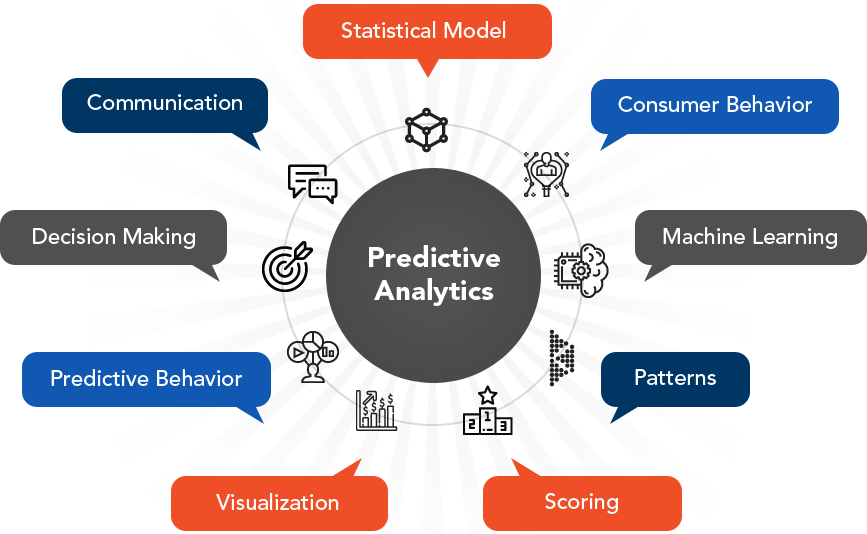Artificial Intelligence Trends In Predictive Analytics For Businesses
Artificial Intelligence Trends in Predictive Analytics for Businesses

Description
Predictive analytics has become a cornerstone of modern business strategies, enabling organizations to forecast trends, optimize operations, and make data-driven decisions. With the integration of artificial intelligence (AI), predictive analytics has evolved into a more powerful and precise tool. AI-driven predictive analytics leverages advanced algorithms, machine learning, and big data to uncover patterns and insights that were previously inaccessible. This article explores the latest trends in AI-powered predictive analytics, its importance for businesses, and actionable tips to harness its potential effectively.
Enhanced Accuracy Through Machine Learning
Machine learning algorithms are at the heart of AI-driven predictive analytics. These algorithms analyze vast datasets to identify patterns and correlations, enabling businesses to make highly accurate predictions. Unlike traditional methods, machine learning continuously improves its accuracy as it processes more data, ensuring that predictions remain relevant and reliable over time.
Real-Time Data Processing
One of the most significant advancements in predictive analytics is the ability to process data in real time. AI systems can analyze streaming data from various sources, such as social media, IoT devices, and transaction records, to provide instant insights. This capability allows businesses to respond swiftly to changing market conditions, customer behaviors, and operational challenges.
Personalization at Scale
AI-powered predictive analytics enables businesses to deliver personalized experiences to customers on a large scale. By analyzing individual preferences, behaviors, and purchase histories, companies can tailor their marketing strategies, product recommendations, and customer interactions. This level of personalization enhances customer satisfaction and drives loyalty.
Risk Mitigation and Fraud Detection
Predictive analytics powered by AI is increasingly being used to identify and mitigate risks. In industries such as finance and insurance, AI algorithms can detect fraudulent activities by analyzing transaction patterns and flagging anomalies. This proactive approach helps businesses minimize losses and maintain trust with their customers.
Automation of Decision-Making Processes
AI-driven predictive analytics automates complex decision-making processes, reducing the need for human intervention. For example, in supply chain management, AI can predict demand fluctuations and automatically adjust inventory levels. This automation not only improves efficiency but also reduces the likelihood of errors.
Four Tips to Leverage AI-Powered Predictive Analytics
Invest in Quality Data Infrastructure
High-quality data is the foundation of effective predictive analytics. Businesses should invest in robust data collection and storage systems to ensure that their AI models have access to accurate and comprehensive datasets.Collaborate with AI Experts
Implementing AI-driven predictive analytics requires specialized knowledge. Partnering with AI experts or hiring skilled professionals can help businesses design and deploy effective predictive models tailored to their specific needs.Focus on Ethical AI Practices
As AI becomes more integrated into business operations, ethical considerations must be prioritized. Ensuring transparency, fairness, and accountability in AI systems is crucial to building trust and avoiding potential legal or reputational risks.Continuously Monitor and Update Models
AI models are not static; they require regular updates to remain effective. Businesses should establish processes for monitoring model performance and incorporating new data to ensure that predictions stay accurate and relevant.
Frequently Asked Questions
What industries benefit the most from AI-powered predictive analytics?
Industries such as retail, finance, healthcare, and manufacturing have seen significant benefits from AI-powered predictive analytics. These sectors rely heavily on data-driven insights to optimize operations, enhance customer experiences, and mitigate risks.
How does AI improve the accuracy of predictive analytics?
AI improves accuracy by leveraging machine learning algorithms that can process large datasets, identify complex patterns, and continuously refine predictions based on new data. This dynamic approach ensures that predictions remain precise and actionable.
What are the challenges of implementing AI-driven predictive analytics?
Challenges include data quality issues, the need for specialized expertise, and ethical concerns related to bias and transparency. Overcoming these challenges requires a strategic approach, including investment in infrastructure and collaboration with AI professionals.
Can small businesses benefit from AI-powered predictive analytics?
Yes, small businesses can benefit by using scalable AI solutions that cater to their specific needs. Many cloud-based platforms offer affordable and user-friendly tools for predictive analytics, making it accessible to businesses of all sizes.
How does real-time data processing enhance predictive analytics?
Real-time data processing allows businesses to analyze and act on information as it is generated. This capability is particularly valuable in dynamic environments, enabling companies to make timely decisions and stay ahead of competitors.
What role does automation play in predictive analytics?
Automation streamlines decision-making processes by enabling AI systems to analyze data, generate insights, and execute actions without human intervention. This reduces operational inefficiencies and allows businesses to focus on strategic initiatives.
Conclusion
The integration of artificial intelligence into predictive analytics has revolutionized how businesses operate and make decisions. By leveraging machine learning, real-time data processing, and automation, organizations can achieve unprecedented levels of accuracy, efficiency, and personalization. However, success in this domain requires a commitment to quality data, ethical practices, and continuous improvement. As AI continues to evolve, its role in predictive analytics will only grow, offering businesses new opportunities to innovate and thrive in an increasingly competitive landscape.
Comments
Post a Comment